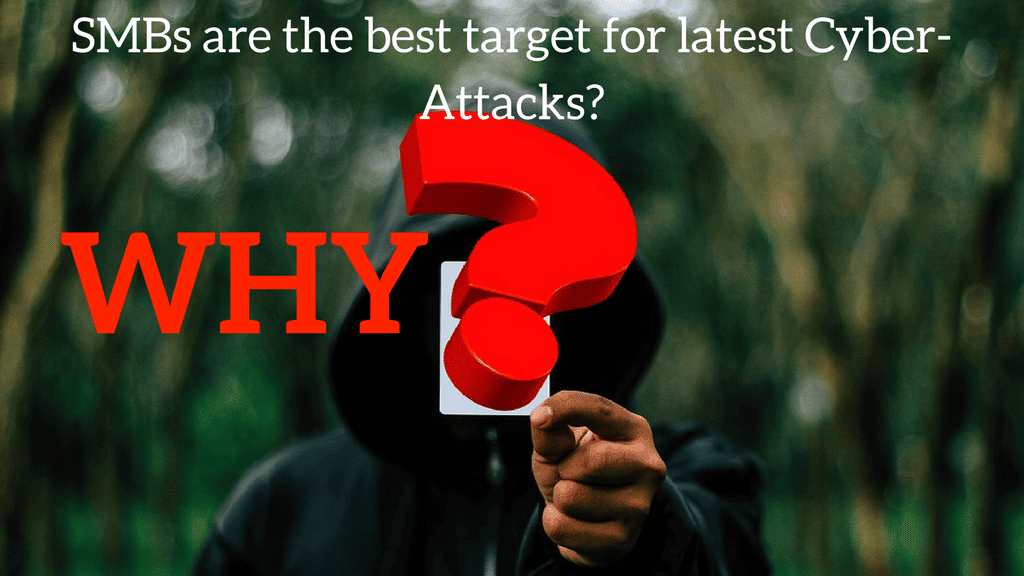
Small and medium scale businesses (SMBs) of all streaks are at higher risk to latest cyber attacks compared to large business enterprises. All types of small businesses (teaching institutions, ecommerce shops, hotels or retailers) have become the favourite target of cyber thieves in the past couple of years. Cyber criminals find it easier to hack small businesses- having lower to no security, compared to large companies, which are secured by top end firewalls. A report states that 43 percent of cyber attacks target small business. A survey commissioned by insurer Nationwide of 500 small businesses revealed that eight in 10 small-businesses don’t have a basic cyber-attack response plan, even though a majority was hit by cyber crimes.
Cyber crimes are done through various phishing scams; stealing potential customer information; stealing company secrets; or even other important company data. All the businesses today run on DATA, which once stolen affects company operations and well as reputation severely. Later hackers use this data to extract money from the organization.
Why SMBs are the best target for latest cyber-attacks:
1) SMBs take security casually
Many small businesses don’t feel the need of cyber security as they don’t find cyber attacks a major risk to their business. It is the main reason they give less priority to security. But when sensitive information of the business falls into the wrong hands, it cripples the whole business.
Hence it is important for SMBs to take cyber security seriously and secure their data as much as they can by taking normal measures like:
- – Having firewall
- – Checking emails and attachments properly before opening
- – Increasing employee awareness for cyber security measures
- – Changing all default passwords to more secure passwords
2) Limited Budget
SMBs have limited budget and it is very difficult for them to hire an IT professional who devotedly works on cyber security aspect. But it is also observed that most of the SMBs do not even take actions which are in range of their business budges. Hence the best go SMBs can give is to at least take all necessary precautions which can be taken within the bounds of budget.
3) Data on local server
Majority of small business maintain their important data on local computers, and very few can retrieve the data back once they are prey to a ransomware attack. Data security is of utmost importance, whether it be SMB or large enterprise. Hence it is always advisable to have a good data recovery plans in place in your business. So even in case of a cyber attack, all company operations can run smoothly with the backed up data.
4) Lack of Awareness about cyber security
Many a times employer as well as employee lacks awareness about latest cyber security measures to prevent cyber attacks. The best way to stay up-to-date with latest cyber security trends is to read technology news and follow technology blogs.
5) Using 3rd party Softwares
SMBs use many third party softwares instead of having their own in-house softwares. Non-reliable third party softwares can become an entrance gate for hackers to breach your network. Hence it is always advisable to use all licensed third party softwares, which are secure and more reliable.
Thus, it is easier for cyber crooks to attack SMBs than target larger companies because of poor security, absence of an infrastructure, technology or a dedicated security personal to detect and mitigate potential attack. Taking some basic steps as mentioned above can avoid such a situation and lead to a more secure database and network. Nobody can be 100 % cyber secure, but it is always advisable to take necessary action and lessen the risk of being attacked.
